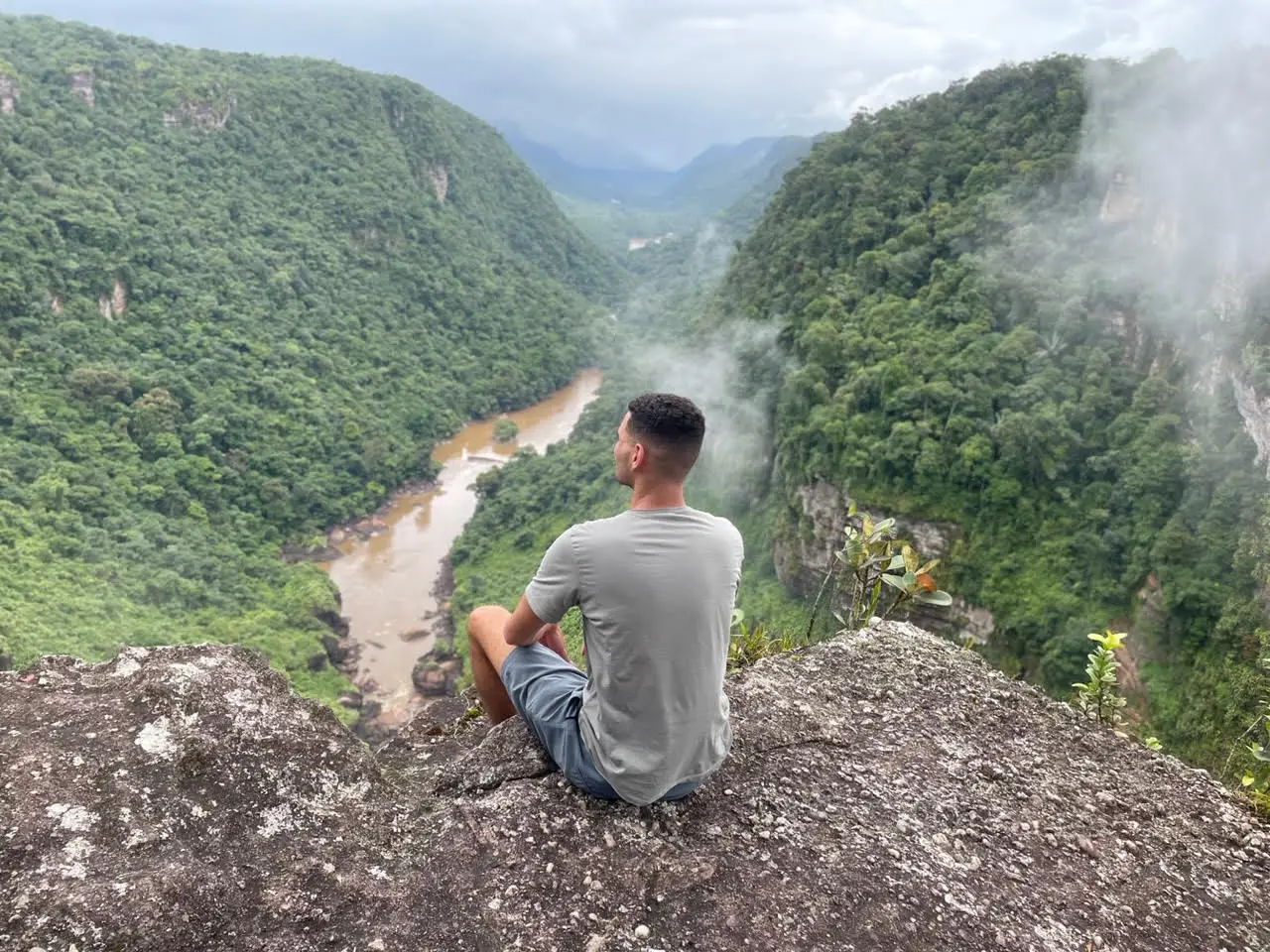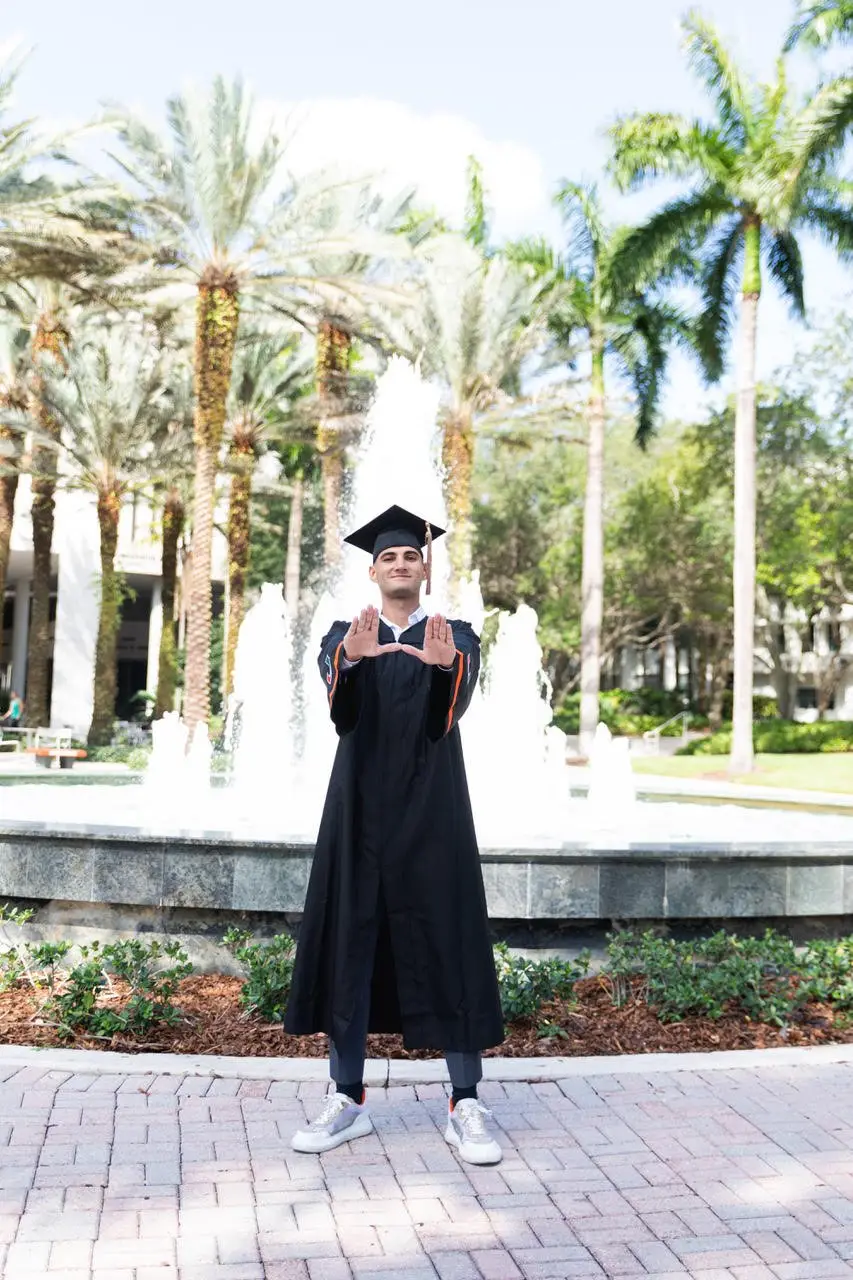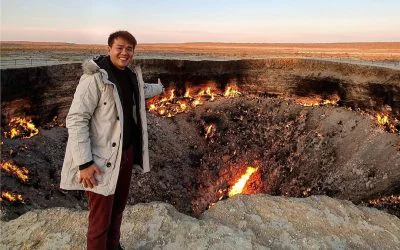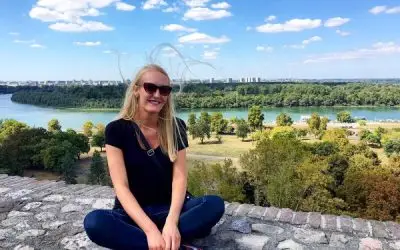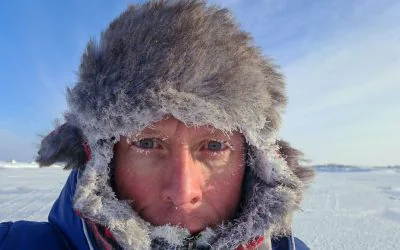Cameron Mofid is the youngest member of our newly launched Executive Committee. At the age of 22, he already has 110+ UN Countries under his belt and beyond that he is already the founder of an organisation and has been a speaker at TEDx. We are very happy to have him be a closer part of the NomadMania family!
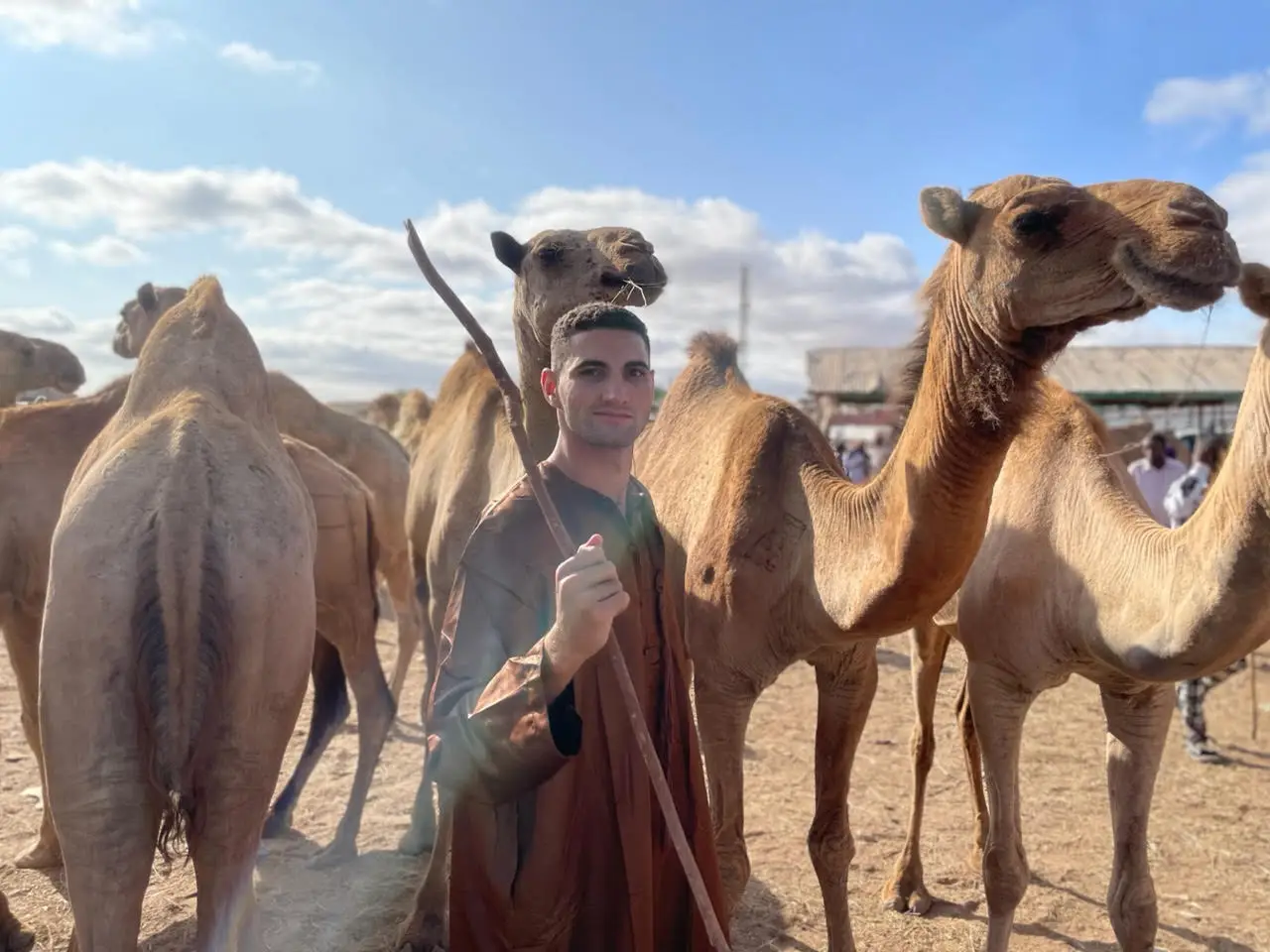
Cameron, tell us a little about your early life and how your love for travel developed.
I grew up in San Diego, California. While I didn’t come from an extremely adventurous travel family, anthropology was valued as being a significant part of my education. I was fascinated with geography, language, history, politics, economics, and other teachings that enabled me to understand why the world is the way that it is. When I was a child, we had a massive map in our garage that spanned the entirety of the wall. My grandmother would call out a country, and my brother and I would compete to see who could point to the country first. “Uganda” has been etched in my mind for as long as I can remember…
One summer in middle school, my mom sent me to a three-week geography boarding camp, where I learned to fill out a blank world map with all 195 countries, amongst other unconventional geography skills. I’ve been a travel nerd for quite some time.
It seems tennis has played a very important part in your life so far. How has that affected where you are today?
I began playing tennis at an early age. While I’d like to think I was a phenomenal tennis player destined to win Grand Slams had it not been for injuries, that was not the case. But tennis did provide me with something incredible – friends from all over the world. For my senior year of high school, I attended the Academia Sanchez-Casal, which is a boarding school for tennis players in Naples, Florida. There were around 40 of us in the entire school.
In my graduating class, I was the only one who spoke English as a first language. Living, training, and studying alongside individuals from countries all over the world gave me more perspective on anthropology than I had ever known from previous studies. During our time at the academy, we competed internationally on the ITF Junior Tour. While tennis was the focus, I was enthralled with the travelling experience as a young adult.
After deciding to forgo collegiate tennis, I decided to start Legends United, which is a charitable platform where professional tennis players could donate their signed memorabilia to raise money for a variety of causes. The academy’s founder, five-time Grand Slam champion Emilio Sanchez, opened the door for me with internships at the world’s largest professional tournaments.
While working as an intern, I would simultaneously collect memorabilia from the world’s top tennis stars. Within the first few months of Legend United’s inception, we were supported by Novak Djokovic, Andy Murray, the Bryan Brothers, and many more of the tennis greats. I was later offered to join the team at the Nick Kyrgios Foundation and ultimately decided to take a gap year before starting my studies at the University of Miami to pursue the work. In 2019, I travelled to 46 countries across 6 continents. I had officially fallen in love with travel.
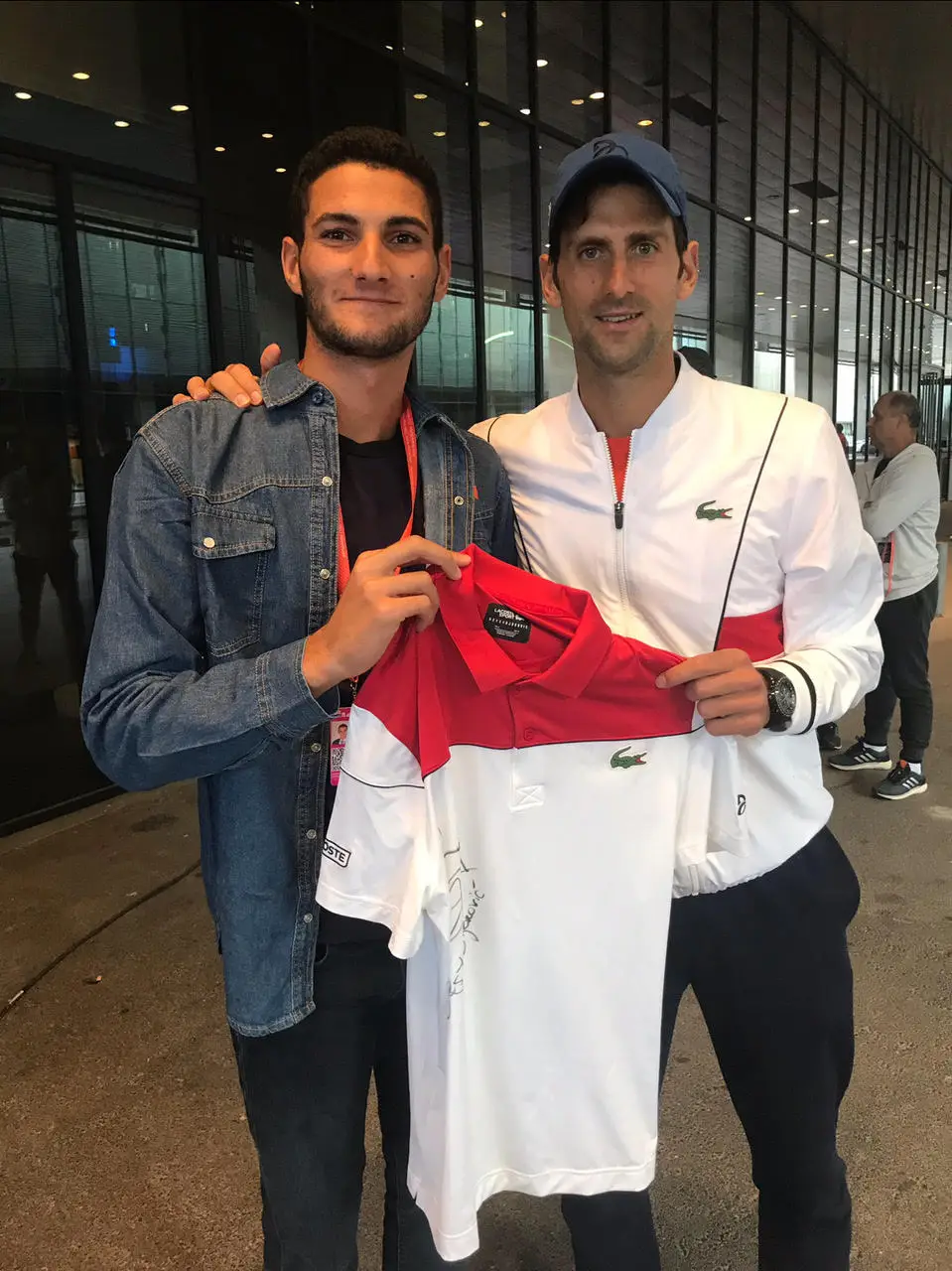
You’re only 22 and yet you’ve graduated with a degree in finance and management and are nearly finished with your MBA from the University of Miami. How have you been able to balance your travels and your schoolwork?
It’s certainly been a busy last few years! When I started at UM a few years back, I wanted to ensure that I didn’t stop travelling. I’m extremely fortunate to go to school in Miami, which is one of the world’s largest travel hubs and a gateway into the Caribbean and Latin America. Whenever the university was on vacation time, sometimes even a long weekend, I’d plan a trip somewhere. I most certainly would not be able to travel with as much ease if I had gone to school anywhere else in the country.
My professors have also been extremely supportive of my travels, many of whom offered me the flexibility to miss classes when need be. By taking extra classes over the semesters and during the summer, I was able to finish my undergraduate degree a year early. I just finished up my MBA in December and graduated as valedictorian.

Your website has a special mental health section. Tell us a little about that and again, how mental health has played a role in your travels.
Since my youth, I’ve struggled with Obsessive Compulsive Disorder (OCD), which has been quite debilitating. Many think that OCD is simply having the inclination to be organized. Still, in actuality, it’s an extremely impairing disorder where an individual’s unwanted thoughts (obsessions) lead to repetitive behaviours (compulsions), such as hand washing, checking things over and over, following strict routines, etc.
When I was younger, I used to do everything possible to hide my disorder from my friends and family out of fear of being judged or viewed differently. Years of suppressing ultimately led to anxiety and depression. Travel was my escape. The feeling of hopping on a plane to a new destination was the most freeing feeling in the world. While my OCD made (and still does make) travelling more difficult for me, it also helped me find ways to manage my disorder. OCD is in many ways about control, and travelling is in many ways about relinquishing control to the journey. I’ve learned to adapt and push myself into situations that my OCD would historically prohibit me from doing.
Through travel, I’ve realized that there are hundreds of millions of people around the world that struggle with a variety of mental health disorders. That realization gave me the courage to open up to my friends and family about mine. I’m fortunate to be able to speak openly about my disorder, but I’m well aware that the majority of those suffering are not. My approach is to be as open as I possibly can about my mental health – even speaking about it on a TEDx Talk and NBC’s Today Show. I’ve made it my mission to try to break the stigma around mental health, and my hope is that by promoting vulnerability around the world, I can do just that.
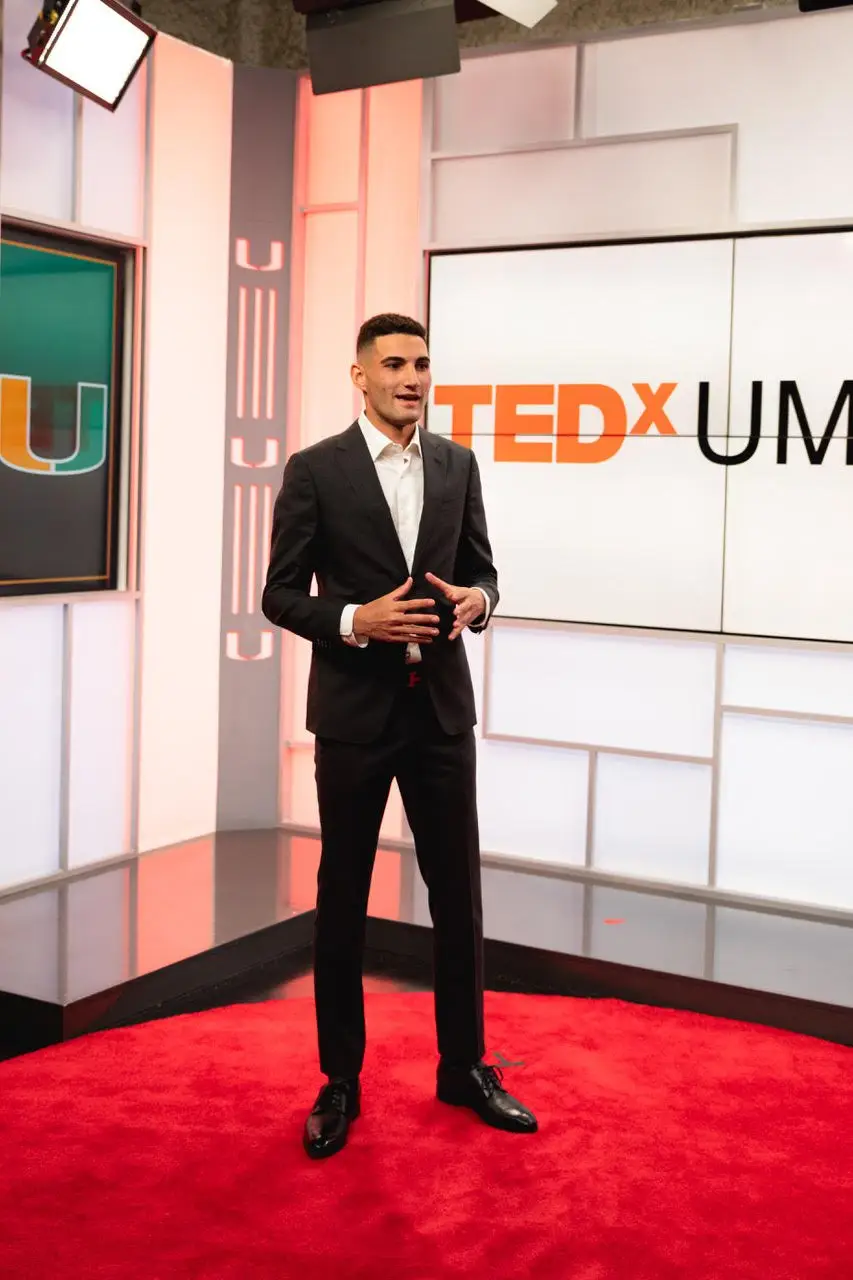
Now, turning to travel – what has specifically motivated you to visit every country in the world?
It’s tough to say. It certainly didn’t start out with a specific motivation, but rather just me, wanting to explore the world. Once I made it to around 50 countries, I started to believe that it was possible, and it kind of went from there. In my research, I saw a community of people out to accomplish a similar feat. That’s when I started to take it more seriously.
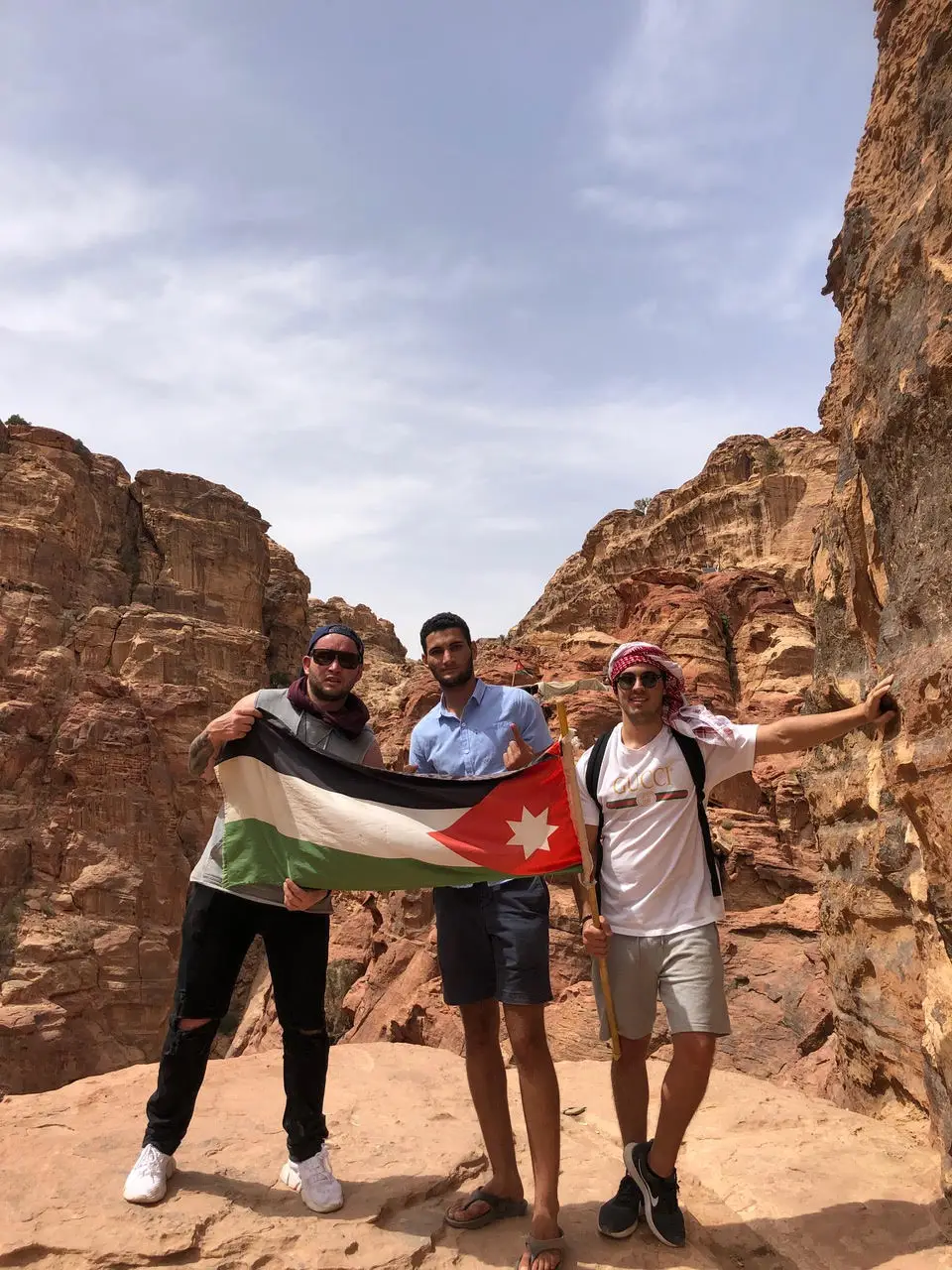
What do your family and friends think about your endeavour?
After graduating from my tennis academy, I had friends all over the world. At one point, virtually all of my closest friends were from other countries. My first big trips started with me going to visit them and their families. Over time, the journey evolved into what it is now. Many of them have either hosted me or joined me on trips, which has made the experience that much more meaningful. They’ve been nothing but supportive.
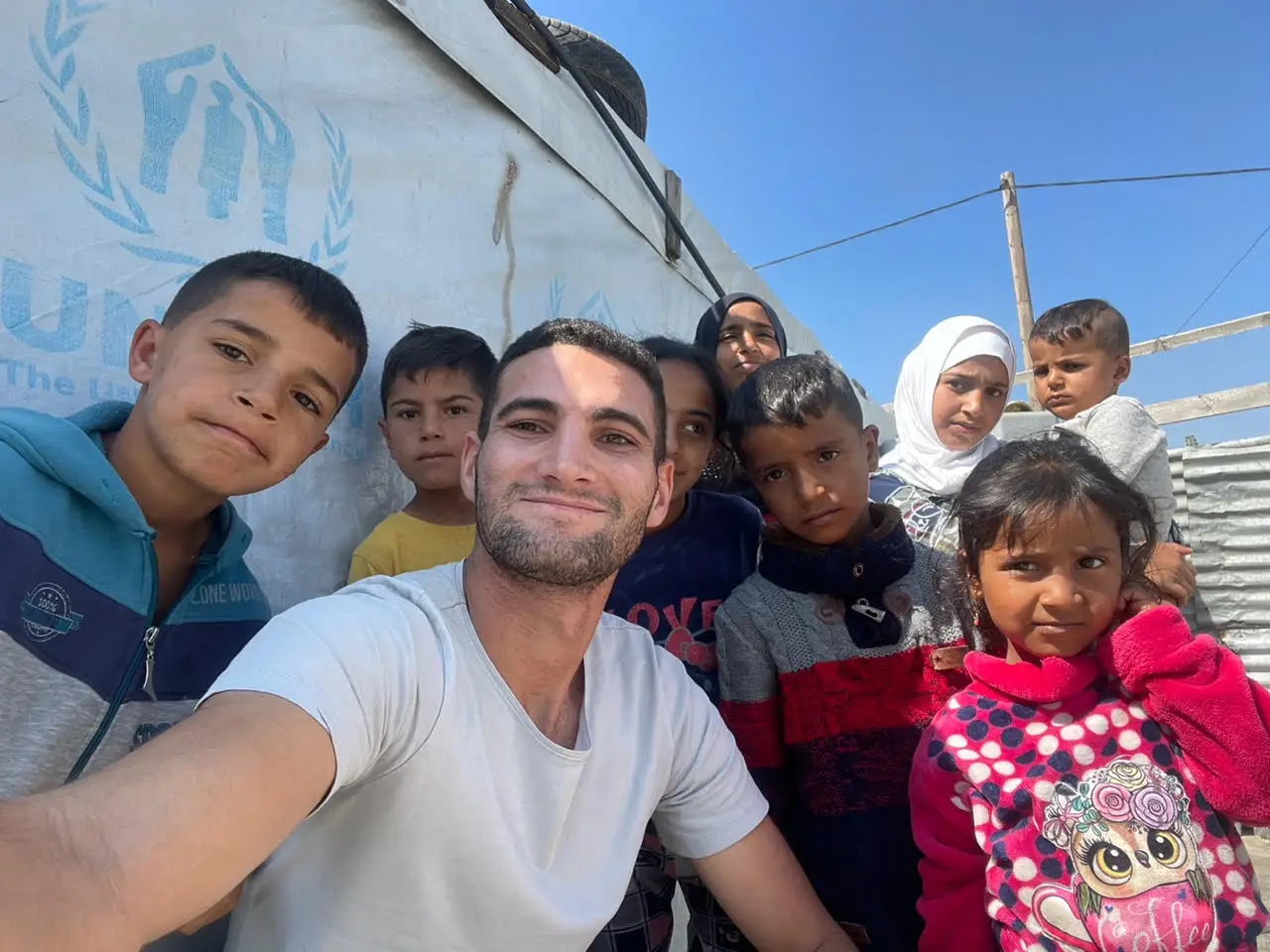
It seems that reaching 193 is now a ‘thing’ and many young people are aiming at this, complete it at a fast pace and young age. What is your take on this, and do you/do you not feel that you can get a true impression of the world’s complexity by visiting countries so fast/young?
It’s a very valid question, and it’s one that a lot of young people trying to accomplish 193 shies away from. Of course, I’m not immersing myself as much as someone who spends weeks in a country, and I’m likely not getting as much out of the experience as they are. In my eyes, I see this initial journey as a taster, where I can experience so many of the world’s cultures and determine which ones I feel inclined to travel to again later in life.
To answer your question, I don’t think anyone can ever truly understand all the world’s complexities, but I am doing my best to learn as much as I possibly can in my time everywhere I go. There have been numerous countries I would have never expected to love, which became my favourites upon visiting, and vice versa. Moving faster has enabled me to visit those places. Travel will always be part of my life, and if I can get to 193, I plan on going back and spending a much longer time in my favourite countries.
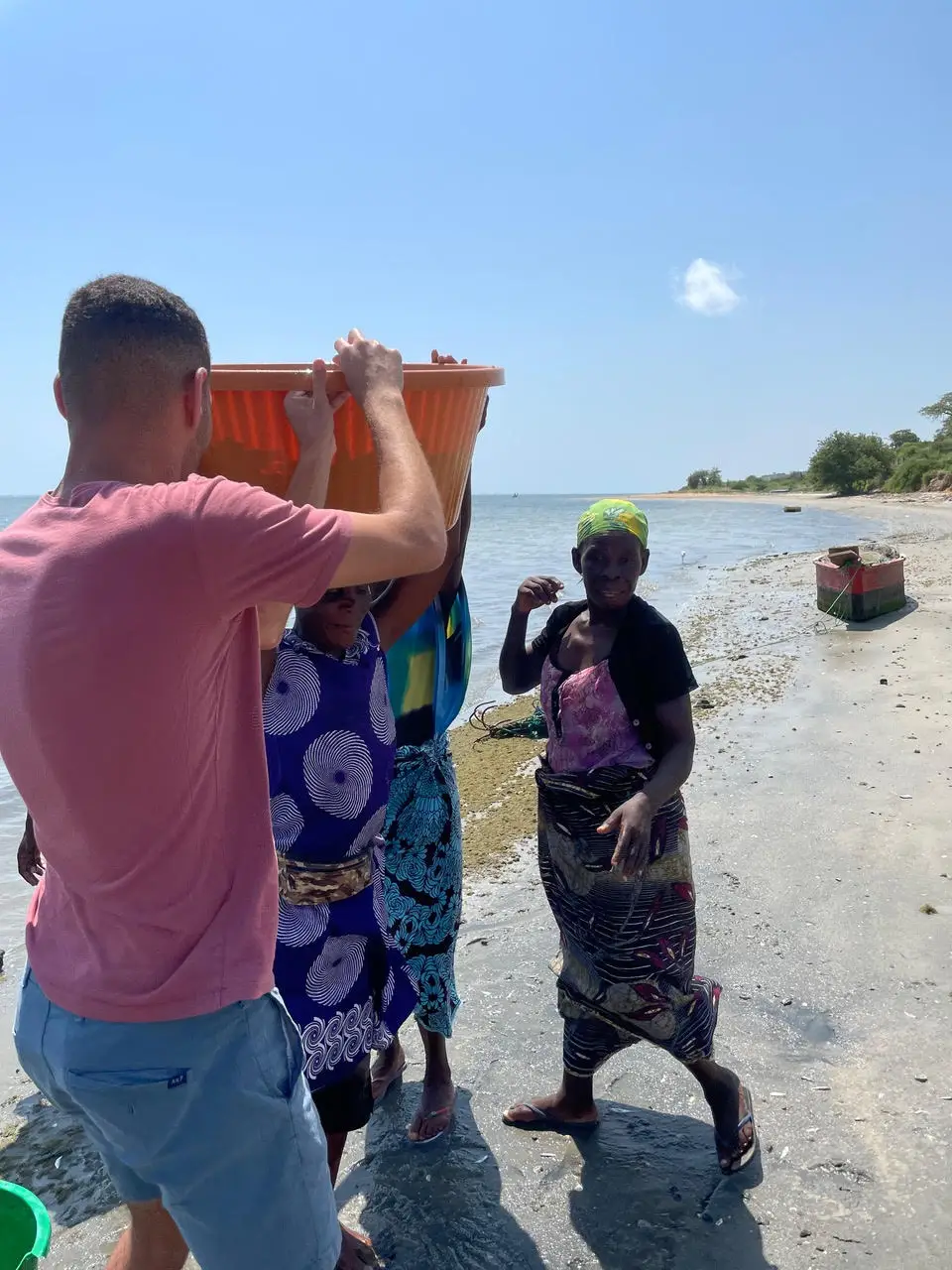
Now tell us a travel story of yours that has really left a mark with you.
In February 2022, I was travelling through Suriname and spent some nights at a boutique hotel in Paramaribo. I was the only guest at the time, and the owner, Ron, insisted on showing me a wonderful time in the country. Ron organized a day trip with his friend’s motorboat to a few Surinamese villages. While we were sauntering the dirt roads of Rust en Werk, the skies unleashed a considerable rainstorm. Ron and I were stranded with no raincoats, no umbrella, nowhere to take shelter, and unable to take our small motorboat back to the mainland. As we sprinted through the rain, a voice called out to us from a nearby home and signalled for us to come in. That voice came from an elderly man named Brian.
Recognizing that the rain wasn’t going to subside anytime soon, Brian invited us into his home to exchange laughs, stories, and some of the world’s most refreshing coconuts. He even invited us to sleep in his home. When the rain subsided, he gave Ron and me a tour of his village, which he has lived in for nearly the entirety of his life.
I couldn’t help but think that a man who had financially so little was prepared to offer everything he had to a complete stranger, without ever asking for anything in return. We are taught from a young age that poor means unsafe, and that exercising extreme caution should be an automatic default. Brian shattered this notion for me. He is evidence that people are inherently good, and that there is endless value in showing kindness to those around us.
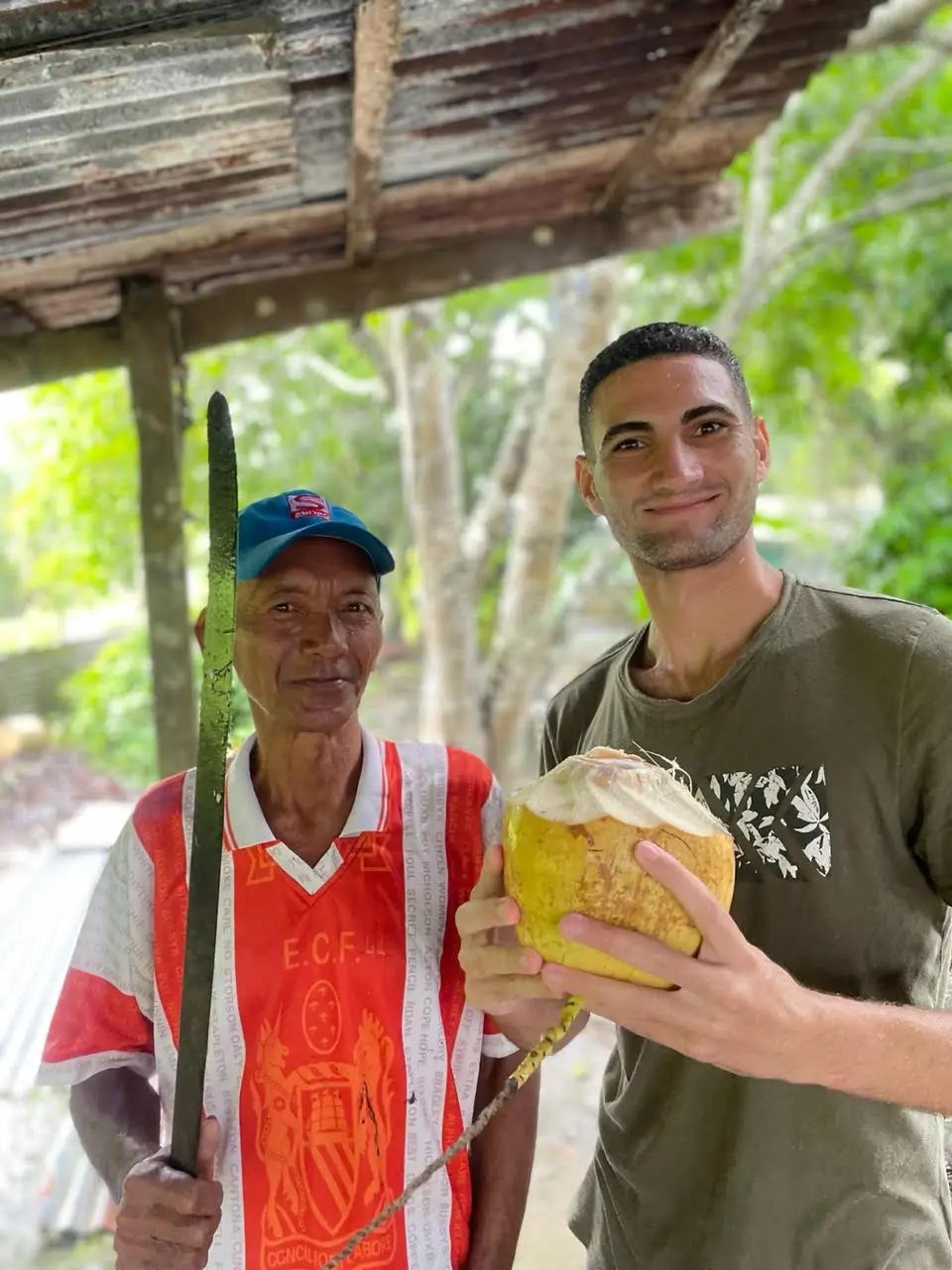
Which of the countries you have been to so far has surprised you the most and why?
There are many, but if I have to choose one it’s Iraq. Leaving the incredibly rich history aside, I was deeply inspired by the resilience, kindness, and generosity of the people. Iraqis have suffered through the ruthless dictatorship of Saddam Hussein, a bloody eight-year war with Iran, a misguided invasion by the United States, an unfathomable wickedness by ISIS, and palpable instability in the current day. In knowing that, one would expect Iraqis to be frightened, paranoid, and hostile. That could not be further from the case.
As a whole, Iraqis exemplify what the rest of the world needs – fortitude, humbleness, and selflessness. It’s for those values that they have survived their struggles and are fighting for better lives. It’s hard to walk down a busy street in Baghdad and not see Iraqis sharing food, tea and laughs with one another. Their benevolence is infectious. My time in Iraq was remarkable and I can’t wait to go back one day.
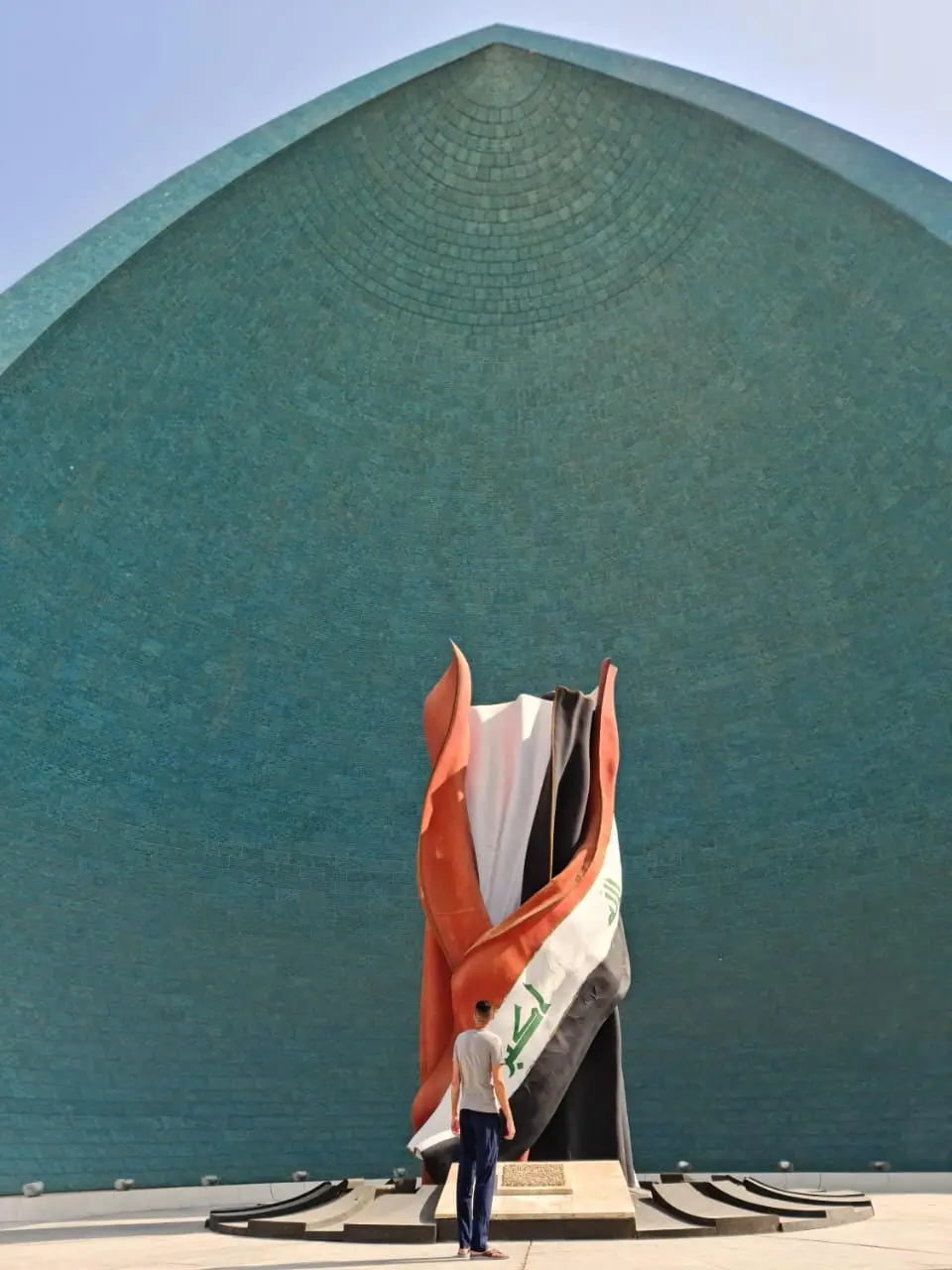
What is your general style of travel?
I started off my travels by using Couchsurfing, which is an app where you can meet and stay with strangers across the world completely free. In addition to saving money, it provided me with the ability to meet some incredible people. I don’t use it too much anymore (for logistical purposes), but it’s a microcosm for how I view my trips – an opportunity to connect with people. I’m much more interested in the people than I am in the places. For that reason, I like to travel solo, because it allows me to wander freely and meet people serendipitously.
I don’t like luxury travel so much because I think it takes away from the authenticity of the experience. That said, I try not to travel too basic to the point where it’s a logistical nightmare or I increase my chances of getting sick.
As I spoke about earlier, I travel on the quicker end of the scale, generally spending less than a week in each country. That said, I think that will shift later on in my travels.
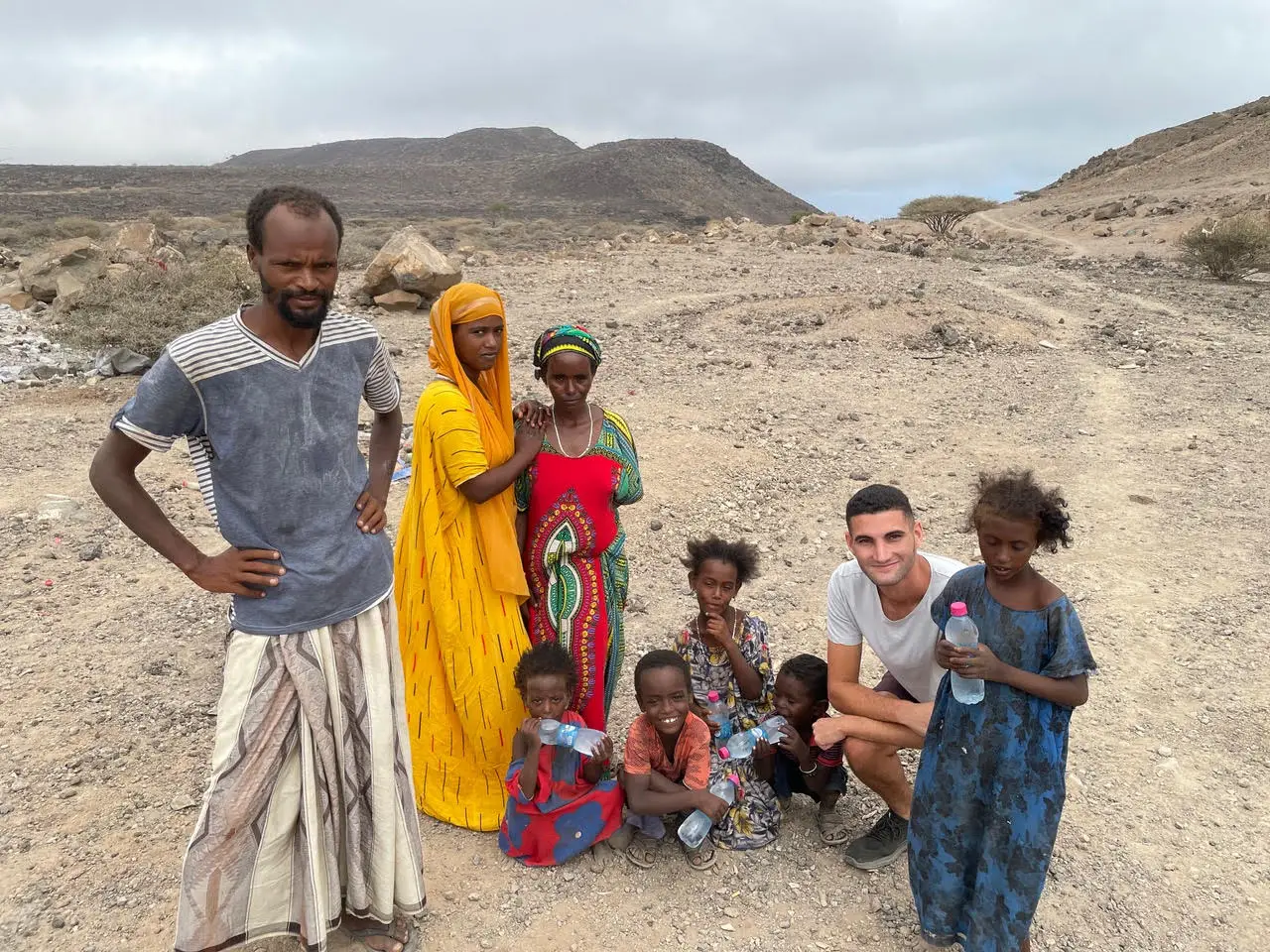
You seem to have a very socially aware approach to your travels. Does that set you apart from your peers who travel or not, based on the travellers you have met?
I’m relatively new to the travel community, so I haven’t met too many of the world’s top travellers. However, I can view my experiences in comparison to my friends and peers at my university. While I don’t love the idea of comparing travel experiences, I do believe that being socially aware has provided me with a more meaningful experience. There are amazing content creators, many of whom are in this community, who do a remarkable job of showing the world’s places. I want to focus on engaging with and spreading the messages of the world’s people.
You haven’t yet visited Russia and Belarus. Given the debate we have recently had in NomadMania on the war in Ukraine, let us ask you – would you travel to these countries right now or not and why?
In all honesty, I haven’t put enough thought into it to give a definitive answer. But I will share my thoughts. A very important part of our job as travellers are to learn, and that responsibility carries even more significance during times of controversy or in places of conflict. Given my very human-oriented approach, I’d be very inclined to travel to Ukraine, and potentially even Russia and Belarus to meet as many people affected by the war as I could.
On the other hand, our job as travellers also entails promoting positive social change. Does travelling to Russia or Belarus embolden their position in the war and leave a message that people will come regardless? Potentially so. The war in Ukraine has (rightfully so) garnered the attention of the entire world, likely because of the prominence and power of the countries involved. But let’s not forget that there are regimes across the world, many of which are in lesser developed countries, that are extremely oppressive and launch unjustified wars (which are more sparingly covered by the media).
Our community still travels to those countries, not to support the regimes, but rather to learn about the places and the people. I guess I’ve left you with more questions than answers, but that’s where I’m at with my thoughts.
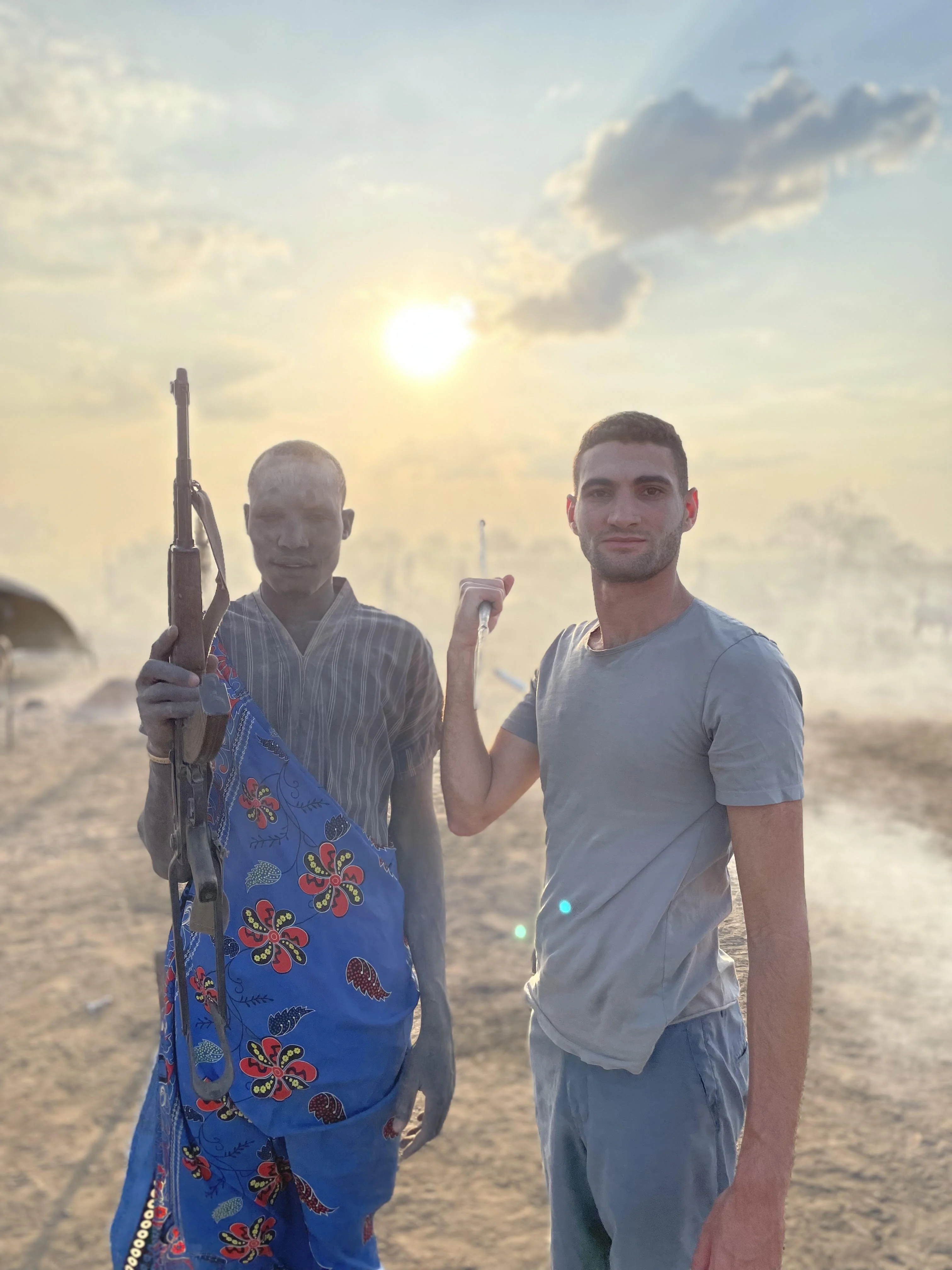
So what are your travel aims in the next 6 months or so?
When writing this, I’ve been to 113 out of 195 countries. I plan my trips very last minute, so it’s tough for me to give geographical goals. That said, I do hope I can become a better traveller. By that, I mean doing an even better job of learning the history of the places I go and connecting on an even deeper level with the people I meet. In doing those things, I think I will have a much more meaningful experience.
And finally our signature question – if you can invite any 4 people from any period in human history to dinner, who would your guests be and why?
Abraham Lincoln, Mahatma Gandhi, Winston Churchill, and Nelson Mandela. In my eyes, these are four of the greatest and most influential leaders in world history. There is considerable value in their perspective and see how they altered the course of the world would be priceless.
